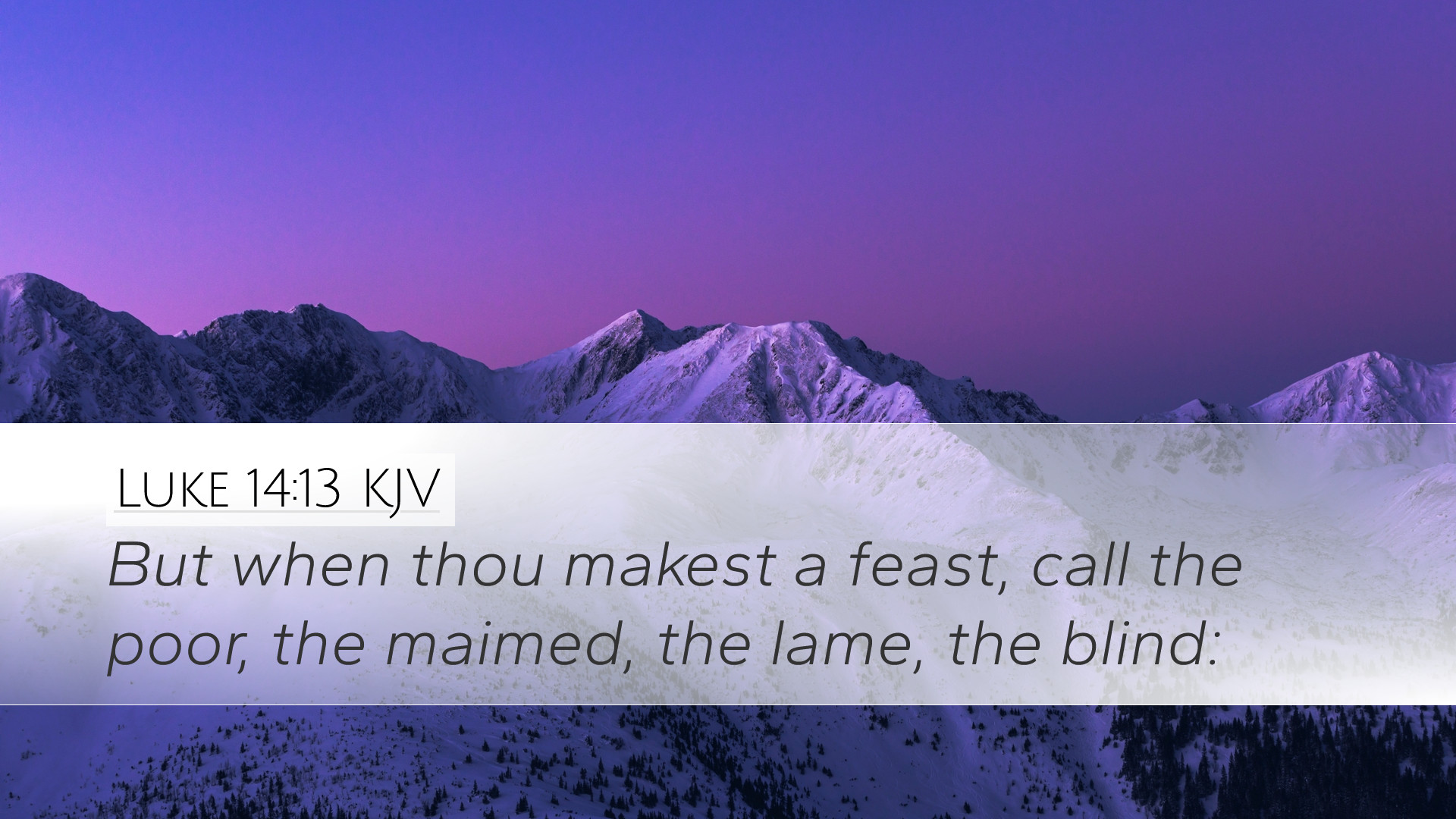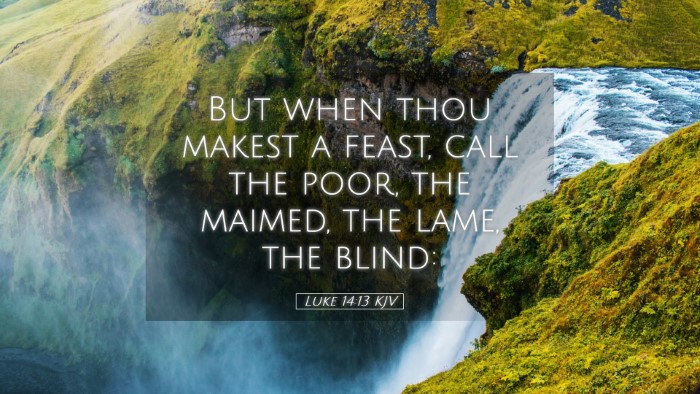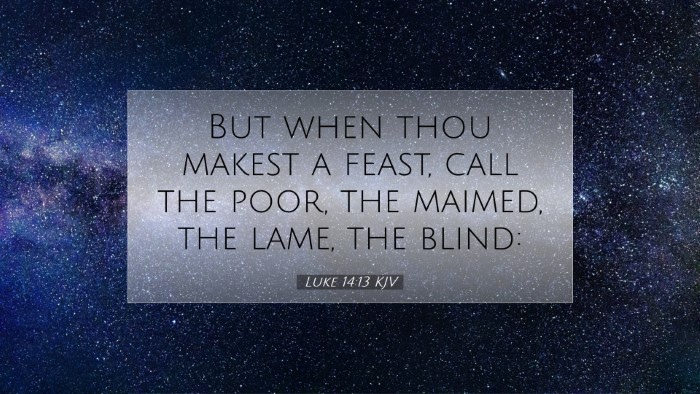Commentary on Luke 14:13
Verse Overview: Luke 14:13 states, "But when you give a feast, invite the poor, the crippled, the lame, the blind." This verse comes within the context of Jesus' teachings on humility and generosity, challenging societal norms regarding hospitality.
Contextual Background
The setting of this verse is a meal at the house of a leading Pharisee, where Jesus observes the behavior of the guests as they take the places of honor. His discourse serves to illustrate principles of grace, mercy, and the true essence of neighborly love.
Insights from Commentators
-
Matthew Henry's Commentary
Henry emphasizes the moral imperative behind Jesus' command. He explains that giving should not be conditional upon receiving in return, a theme prevalent across Jesus' ministry. He advocates for the inclusion of those marginalized by society—those deemed unworthy by social standards—as a reflection of God's grace.
According to Henry, this reflects the heart of the gospel; caring for the less fortunate exemplifies true Christian love. The act of inviting the poor embodies the nature of Christ's ministry, which consistently reached out to those in need.
-
Albert Barnes' Notes
Barnes provides a practical interpretation of the verse, suggesting that the command to invite the poor holds both a literal and spiritual significance. He argues that this action goes beyond mere charity; it reveals one's attitude toward wealth and status. In God's kingdom, the poor are valued, and serving them is a direct service to Christ.
He also elucidates that such generosity defies societal expectations, where hospitality often demands reciprocity. Barnes comments on how this teaching challenges believers to act selflessly and to find joy in giving without expectation of return.
-
Adam Clarke's Commentary
Clarke highlights the radical nature of Jesus' instruction, illustrating that it was countercultural for that time. Clarke notes that Jesus sought to overturn the prideful customs of the day, where hospitality was offered primarily to those who could pay it back. The poor, blind, lame, and crippled represent those who are unable to repay, thus serving as an embodiment of pure charity.
Clarke further connects this verse to the greater biblical narrative of God's concern for the marginalized, asserting that this is not merely an ethical guideline but a principle grounded in the character of God Himself, who shows favor to the oppressed.
Theological Implications
In interpreting Luke 14:13, we find rich theological implications pertinent to understanding Christian discipleship. The act of inviting the impoverished reflects God's kingdom ethos—where the last are first and the least are esteemed. This passage presents a clear counter-narrative against the backdrop of a self-serving culture.
Kingdom Ethics
- Service Over Status: This teaching inverts the usual social hierarchy, advocating for a kingdom perspective where serving others is more valued than pursuing prestige.
- Grace in Action: The invitation to the neglected serves to illustrate grace in action. It invites believers to enact their faith through concrete acts of kindness, transcending our comfort zones.
- Hope for the Hopeless: An invitation extended to the poor symbolizes the hope of the gospel breaking into despairing circumstances, echoing the salvific work of Jesus Himself.
Practical Applications for Ministry
For pastors and church leaders, Luke 14:13 urges reflection on how church communities practice hospitality. In practical terms, this can influence church outreach programs, community services, and the way faith communities interact with the underprivileged.
- Embrace Inclusive Hospitality: Churches must cultivate environments that prioritize the marginalized, ensuring that the poor feel welcomed and valued.
- Leadership Example: Leaders are called to model this principle—serving those in need and encouraging congregants to follow suit.
- Educational Initiatives: Implement teaching that relates this passage to real-world applications, inspiring congregants to engage in acts of mercy.
Conclusion
In summary, Luke 14:13 encapsulates profound lessons on generosity, humility, and inclusivity. The combined insights from esteemed commentators shine a light on the radical call to invite and include those whom society often overlooks. As believers, let us embody the spirit of this teaching, extending our tables to all, reflecting the heart of Christ as we engage with the world around us.


